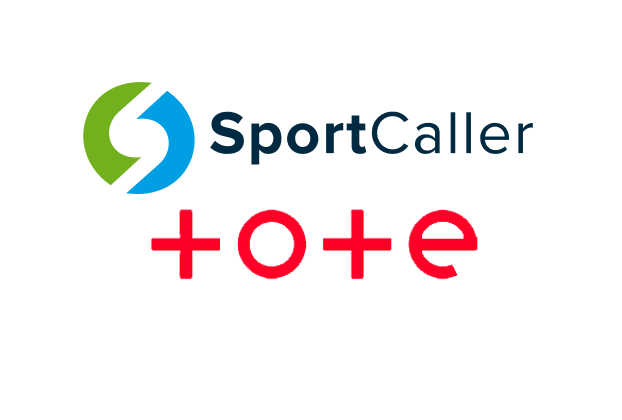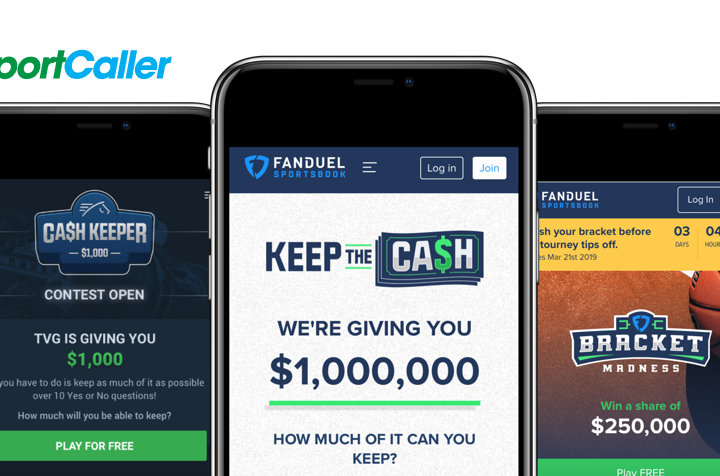This article was published by Gambling Insider
Paddy McDermott, Performance Director at SportCaller, examines the ways in which free-to-play games are helping marketeers to maximise sponsorship opportunities with enduring engagement
When it comes to the constantly shifting sands of the gaming industry, impediments to progress can sometimes appear out of nowhere, or reveal themselves in more nuanced fashion. After all, if you’re in the vanguard of a business which is driven by the levers and limits of advancing technology, innovation and regulation, you have to be able to adapt to the evolving landscape and embrace improved capacities.
At SportCaller, part of our modus operandi has been to help partners negotiate new or gradually more onerous obstacles not only in gaming, but also the wider media space. The range of such obstacles includes the ability to cut through the noise and stand out across high-profile events like the World Cup; acquiring new customers in an increasingly competitive landscape; staying fully compliant within a tightening world of legislation, particularly with respect to promotions; and engaging players in a world of digital distraction. Our intention: to create a progressive portfolio of free-to-play prediction games which can be pressed into a variety of innovative services, across many territories, languages and legislative jurisdictions.
As an eloquent case in point, we recently entered into an official partnership with mobile-betting brand MoPlay, after they announced a multi-year global partnership with Manchester United. Together, the task has been to create exclusive collaborative content for fans which powers engagement.
Engaging in such a high-profile alliance so soon after MoPlay’s inception, however, raised a range of challenges. Indeed, in the saturated world of sportsbooks – notably in the UK – acquisition and retention of players appears as tricky a goal when you’re recruiting from a notoriously fickle clientele. How, then, to stay fully compliant, not only with increasing gambling legislation but also with a global brand with the profile of Manchester United – whilst also optimising sponsorship and engagement?
Well, the free-to-play (FTP) game model was initially founded on the acquisition-retention-monetization premise – a long-standing model which tracks the lifespan of customers from awareness to engagement to purchase. With FTP, acquisition means attracting new users for the game, so you need a great underlying product whose gameplay is intelligible, intuitive and fun. Which ideally means organic to the inherent excitement of the underlying sport or event.
Long story short: games need to foster playability that is synonymous with the action, either speaking directly to a sport’s protagonists, or riding on the back of any event’s structural system (e.g. scoring components). These games must be in sync with the action to make them instantly relatable – who will win the match/event; will X striker score a goal; who will be voted off Y’s reality-TV show tonight?… you get the idea. Only then does the retention kick in, with well-designed mechanics which ensure players return repeatedly and consistently to play the game.
Monetization, or in our case conversion-to-bet, is the ultimate aim – i.e. transitioning game players into real-money end-users with the client. More broadly, received wisdom from the “freemium” model suggests that 5% is a good objective for FTP players who successfully make it through this three-step lifecycle. At SportCaller, we can boast a similar target-evolution, converting FTP game players into active betting customers for our clients via bet-prompts which align with any user’s gameplay activity. However, we are producing very different figures. In fact, on, average 35% of our players click through those bet prompts, with 20% of players are converting to bet. Our partners also report that new customers acquired from these games are more valuable and active than any recruited from other sources.
Over the past eight years, we’ve gone to great lengths to establish the technical foundation and team needed to deliver sustainable value to top-tier clients. The platform we have built now allows us to quickly integrate with any partner and launch games across different sports and other popular events which capture the zeitgeist – across over 20 countries, too. We’ve developed games with ITV Racing (ITV7, which engages players through their live card of races); bwin’s partnership with Olympiakos’ basketball team in Greece (following the success of three separate FTP football games with that client); and even corralled the non-sports demographic of the I’m a Celebrity audience (via Lottoland’s Jungle Jackpot, a £1m jackpot FTP that also offers daily prizes to its participants).
All these games converge in delivering a deeper dive for any sponsor through genuine engagement. Predicting the outcome of sporting events showcases knowledge, expertise and confidence – the kind of characteristics which fuel fans’ desire to express their opinions, talk about their teams, and recommend their products. By organically leveraging players’ enthusiasms, we’ve discovered both acquisition and bet conversion effortlessly accelerate. Providing content that not only connects with customers but also encourages them to share with their community (whether that’s for bragging rights, enhanced by FTP leaderboards, or social media sharing prompts) has to be the touchstone philosophy.
Ultimately, the best attribute you could ever give an FTP game is no-one’s asking why you’re offering it. It’s well to remember that we’re in the entertainment business here. You’re competing for people’s time and attention against a suite of other digital giants. So, when it stops being fun, people generally stop playing. Or go elsewhere. It’s imperative, therefore, that FTPs work to the same principles and deliver proper fan engagement and increased dwell time for any partner or sponsor. SportCaller’s games don’t even have to include betting per se, they can just be educational to a future opportunity or market (as we’ve done stateside post PASPA’s repeal). Brand awareness and allegiance naturally follows. Indeed, we already have experience in delivering such games with clients such as LiveScore.
Whatever the format or the target demographic, though, the vital metrics of measuring effective engagement, activity and new-account conversion need to be highly trackable to maximise brand possibilities. As we’ve discussed, worldwide regulation on gambling advertising is turning the screws. Take a look at Italy’s ban across all media platforms; or heed the warnings from Spain that their next budget may see its government follow similar suit.
When the terrain of a playing field changes, however, it’s often preferable to simply change the game you’re playing. More generally, according to the Top Grossing chart in the App Store, FTPs dominate the chart of the most profitable smartphone games from the U.S. to Russia, so you can clearly see which way the tide is running – above all, on mobile.
That said, FTPs require more flexibility to become universally compliant. To which end, SportCaller has developed unique geo-location tools allowing us to geo-restrict (amongst varying countries or states) with ease. This is already in place throughout Europe, with bwin and Betfair, and on a state-by-state basis with horseracing network TVG in the USA. Equally importantly, we can also limit and confine activity to over 18s, or in the case of the U.S. over 21s. In turn, this also allows the game itself to better connect different demographics, taking FTPs outside the realm of the sports bettor to a far broader consumer base of everyday players.
In conclusion, no matter the target market, when it comes to amplifying the sponsorship and player-engagement prospects, it’s all about becoming a bigger, harmonious part of the customer’s journey. Otherwise, that acquisition-retention-monetization marketing model will prove a rocky road better left untraveled. Wherever you set your scene, though, free-to-play jackpot games are now opening up a third way for partners to make it to market on time.


